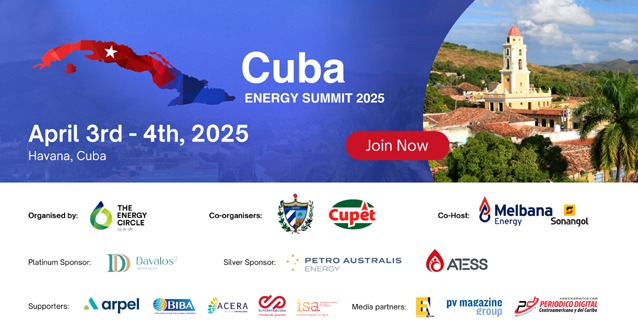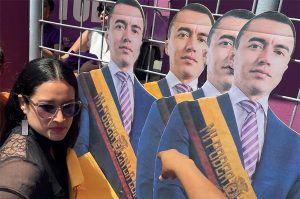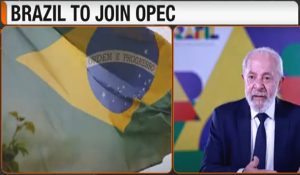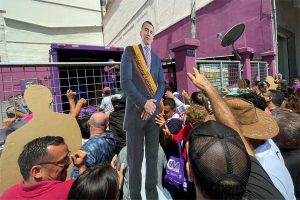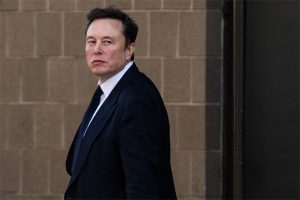
Andrew Rosati, Bloomberg News
CARACAS
EnergiesNet.com 08 06 2024
As Venezuela emerged from the deepest economic slump in modern history, its authoritarian president, Nicolas Maduro seemed willing to take his chances on a new, open election. Against the odds, a credible opposition candidate, Edmundo Gonzalez, was allowed to run, as Maduro sought to convince the international community that he was respecting democratic principles.
Instead, those principles were flouted openly, leaving Venezuela more isolated than ever as even regional allies distanced themselves. Maduro declared July 29 that he’d won a third six-year term. But the opposition released detailed results from a majority of polling stations indicating Gonzalez took nearly 70% of the vote, nearly twice Maduro’s share.
The disputed vote set off nationwide demonstrations, which resulted in mass arrests and at least 11 deaths amid clashes between protesters and the security forces. Masked thugs vandalized the offices of opposition leader Maria Corina Machado. She wrote in a Wall Street Journal oped that she’d gone into hiding, though she surprised supporters by showing up at a demonstration Aug. 3.
The US, which has had a strained relationship with Maduro, recognized Gonzalez as the winner of the election. The governments of Argentina, Chile, Costa Rica, Panama, Peru, the Dominican Republic and Uruguay disputed the results, leading Maduro to expel their diplomats.
What did election observers say?
The Atlanta-based Carter Center, the sole independent observer allowed to monitor the race, said it could not verify the official results. The National Electoral Council’s failure to publish detailed numbers by voting station constituted “a serious breach of electoral principles,” it said.
The Center also said that the process leading up to voting “cannot be considered democratic,” and that the electoral authority clearly favored the incumbent. The authorities barred the opposition’s most popular figures — notably Machado, a conservative former congresswoman and probably the nation’s most popular politician. The much less well-known Gonzalez stood in for her.
The Carter Center said that efforts to register voters were weak and that bureaucratic hurdles prevented many in the 8 million-person diaspora from registering.
Nevertheless, voters turned out in large numbers. Long lines formed at polling stations across Caracas, including in working-class neighborhoods that have historically backed the government.
How has Maduro retained power?
Maduro has managed to ride out the crises of his 11-year rule thanks to his grip on Venezuela’s levers of power: the courts, the National Assembly, the electoral authority and the military, the country’s most important arbiter of power.
This institutional control enabled Maduro to quash dissent caused by the economic collapse that took place under his watch, including nationwide protests in 2014 and 2017. After his opponents won control of the National Assembly in 2015, Maduro allies on the high court voided its decisions.
What role is Venezuela’s military playing now?
The military’s top brass have stood behind Maduro, deploying troops to stifle unrest and so far ignoring overtures from the opposition to switch sides.
They’ve stayed loyal to Maduro due to a mix of patronage and fear, security experts say. Senior officers are given valuable business concessions, such as control over ports and mining concessions, while the prospect of facing punishment for past corruption is a powerful deterrent to potential turncoats. Meanwhile, intelligence services keep an close eye out for signs of disloyalty.
What’s the US history with Maduro?
In 2017, the US imposed financial sanctions on Venezuela, part of a strategy by the administration of then-President Donald Trump to drive Maduro from power. From 2019, crippling economic sanctions essentially banned the oil-rich nation from selling its crude to the US — which had been its biggest customer for nearly a century.
Under President Joe Biden, the US lifted many of the harshest curbs last year in exchange for a pledge by Maduro to hold clean elections. That energized the recovery from the 2014-2020 slump, as the socialist Maduro has ditched state controls, embraced private business and allowed the widespread use of dollars.
Most of the sanctions were reinstated in April after the regime reneged on the deal. Still, the US has granted a few oil majors, such as Chevron Corp. authorization to keep pumping Venezuelan crude.
What’s next?
Machado is trying to drum up additional international support for the opposition. Meanwhile, long-time allies of Maduro on the left — including the presidents of Brazil and Colombia, Luiz Inacio Lula da Silva and Gustavo Petro — are trying to diffuse tensions. They have demanded that the Venezuelan government publish complete voting data, which Maduro has indicated he’ll do.
A clean and fair election was widely viewed as a necessary first step for Venezuela to regain access to US financial markets. Without that, it’s likely to continue to struggle to restructure more than $150 billion in defaulted debt or bring in investment to revive its derelict oil industry.
In the aftermath of the election, the US threatened to impose additional sanctions, but it’s not clear that the Biden administration would risk rattling the energy market, and potentially pushing up gasoline prices for US drivers, ahead of the Nov. 5 US presidential vote.
–With assistance from Nicolle Yapur.
bloomberg.co 08 05 2024

